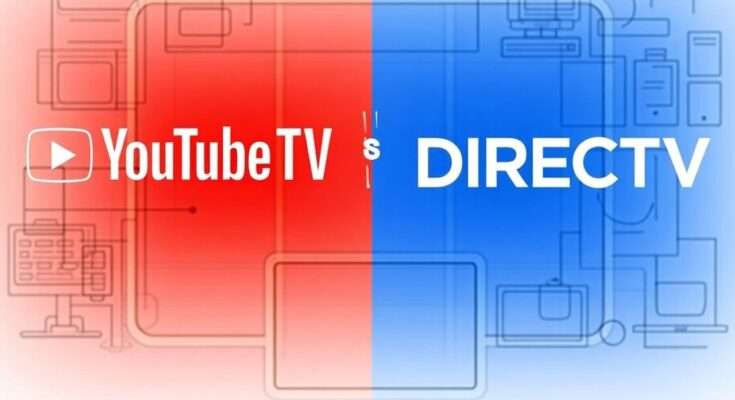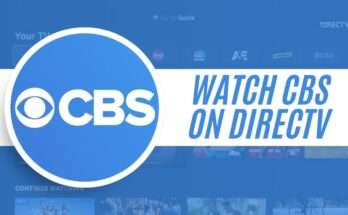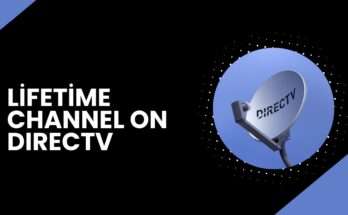In 2025, as the streaming field opens up, DIRECTV Stream and YouTube TV might rank as the two most prominent services that compete to grab your eyeballs. Although both services are good, they attract their customers and audience with their different features, channel options, and price structure. In this blog, we’ll be discussing the differences of YouTube TV vs DIRECTV Stream when it comes to pricing, channel selection, picture quality, and the user experience.
YouTube TV vs DIRECTV Stream Overview
Two of the most well known live TV streaming services that you might come across include YouTube TV and DIRECTV Stream with special features and channel lineups. YouTube TV commands a reputation for featuring a huge channel lineup with over 100 channels pitting it against cable providers and costs $82.99 per month. On the flip side, DIRECTV Stream has about 90 channels of regional sports networks for $86.99 a month. While there is unlimited DVR storage on both platforms, you soon find yourself picking a side that depends on how you prefer your channel availability and your user experience.
YouTube TV vs DIRECTV Stream Comparison
| Feature | YouTube TV | DIRECTV Stream |
|---|---|---|
| Starting Price | $82.99/month | $86.99/month |
| Channel Count | Over 100 channels | 75+ channels (up to 150 in higher tiers) |
| DVR Storage | Unlimited | Unlimited |
| Simultaneous Streams | Up to 3 outside home network | Unlimited within home network |
| On-Demand Library | 2,000+ titles | 90,000+ titles |
| Local Channels | Yes, included | Yes, included |
| Sports Coverage | Major leagues, limited RSNs | Extensive RSN coverage |
| Picture Quality | 1080p HD, occasional drops | Reliable 1080p HD |
| User Interface | Intuitive and user-friendly | Functional but mixed reviews |
| Contract Requirement | No | No |
Channel Selection
The channel lineup is another vital factor when evaluating YouTube TV vs. DIRECTV channel list:
- YouTube TV offers over 100 channels and includes big networks like ABC, CBS, NBC, and Fox as well as must-see cable networks like ESPN and AMC.
- While offering around 90 channels DIRECTV Stream does well with regional sports coverage and certainly includes many local networks that sports fans will want.
- Premium add-ons like HBO Max and Showtime are of course available on both platforms. But if you’re especially into sports or certain cable networks, it pays off to review the channel lineups.
Picture Quality
A critical aspect to consider is the DIRECTV Stream vs YouTube TV picture quality:
- In both services, the quality is usually high-definition (HD) streaming. But users have also complained that YouTube TV suffers from buffering during peak usage times.
- Whereas DIRECTV Stream has been warmly applauded for having a consistently unimpaired picture with a negligible measure of concerns and swats.
For viewers who want uninterrupted viewing experiences during live events or sports broadcasts, this distinction can be very important.
YouTube TV vs DIRECTV: User Experience
User experience plays a significant role in customer satisfaction when choosing between DIRECTV Stream or YouTube TV:
- YouTube TV has an easy to navigate through channels and recorded content. Each of these six individual profiles that can be set up per account makes it easier for users to manage their personalized recommendations and DVR libraries.
- But unlike YouTube TV, DIRECTV Stream has earned some negative reviews about its interface being easy to use. At home it allows you unlimited streaming, but only to three (seemingly) at once in the outdoors.
- One of the best ways to improve your viewing experience would be to be able to quickly search for content and manage recordings too.
Sports Coverage
For sports enthusiasts comparing DIRECTV vs YouTube TV, both platforms offer robust sports coverage but cater to different needs:
- Though YouTube TV covers many major sports leagues, it often lacks some of the input you don’t want to be broadcasting like regional sports networks vital for local teams to reach their audience.
- For fans looking to follow major metropolitan teams, DIRECTV Stream is the way to go; it’s great at providing access to local RSNs and more regional sports content.
- If sports are a big part of your viewing habit, then think through: which service do you need to pay for so it includes the channels and coverage of your choice?
Additional Features
DVR Capabilities
Both services provide unlimited DVR storage; however, there are some differences:
- On YouTube TV, users can watch an unlimited number of shows at once and recordings will be forever accessible for up to nine months.
- However, DIRECTV Stream also has unlimited DVR storage but is limited to 30 episodes per series at once.
Streaming Devices
They are both compatible with a wide variety of devices, including smart TVs, streaming sticks (Roku and Amazon Fire), gaming consoles, and smartphones and tablets. However:
- YouTube TV features more compatible devices.
- Some devices are required for DIRECTV Stream to perform at their best.
Contract Requirements
Both also don’t need long-term contracts, serving on a month-to-month basis. The flexibility allows the users to ditch or switch services without penalty.
Conclusion
The variable between YouTube TV and DIRECTV Stream 2025 is a function of your viewing priorities. Unlike YouTube TV there’s a much larger channel selection available at a lower price and a more intuitive user interface. If you need lots of regional sports chops and local channel juice, choose DIRECTV Stream. Once you evaluate in 2025 what you need at the time you need it, then you will be able to make the best selection for your entertainment in 2025.



